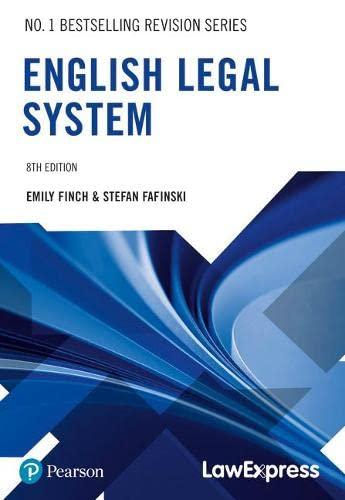Question
Roberson was running his catering business as a sole proprietor for a long time. As the business grew, he decided to incorporate his catering business.
Roberson was running his catering business as a sole proprietor for a long time. As the business grew, he decided to incorporate his catering business. Once he registered his Company, he owned all shares. He sold his catering business to Singh Inc. (Singh). As Singh had no assets to pay for the catering business, he loaned the Singh money to purchase the business from himself. Then he secured the loan with a debenture similar to a mortgage on the Company's assets. When COVID-19 began in 2020, the catering business faced many challenges, and finally, Singh's business failed. The Singh had borrowed money from creditors as well. Then creditors started to ask Roberson to pay the loan amount. He declined to pay creditors. As a secured creditor, Roberson had the first claim on company assets. He did not leave anything for the unsecured creditors. Now when other creditors came to know about the risk of losing their money, they filed a law suite against Roberson and claimed that he should be responsible for paying them and he should be prevented from claiming ahead of them.
Please discuss who will win this case.
Being a major shareholder, can Roberson escape from Singh Inc's debt liability?
Step by Step Solution
There are 3 Steps involved in it
Step: 1

Get Instant Access to Expert-Tailored Solutions
See step-by-step solutions with expert insights and AI powered tools for academic success
Step: 2

Step: 3

Ace Your Homework with AI
Get the answers you need in no time with our AI-driven, step-by-step assistance
Get Started


